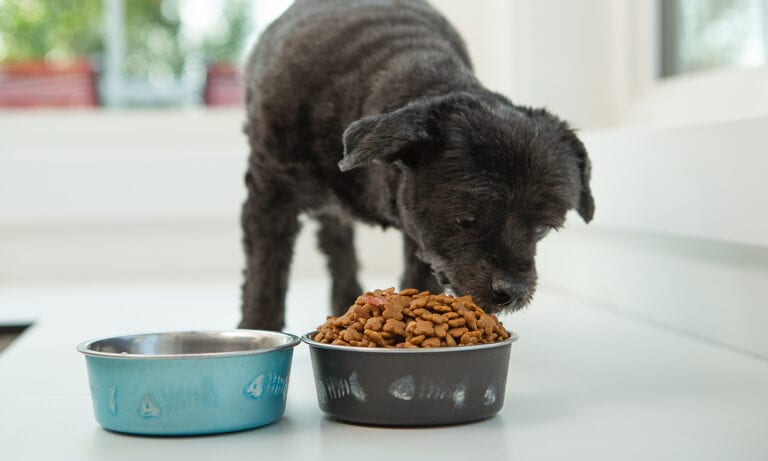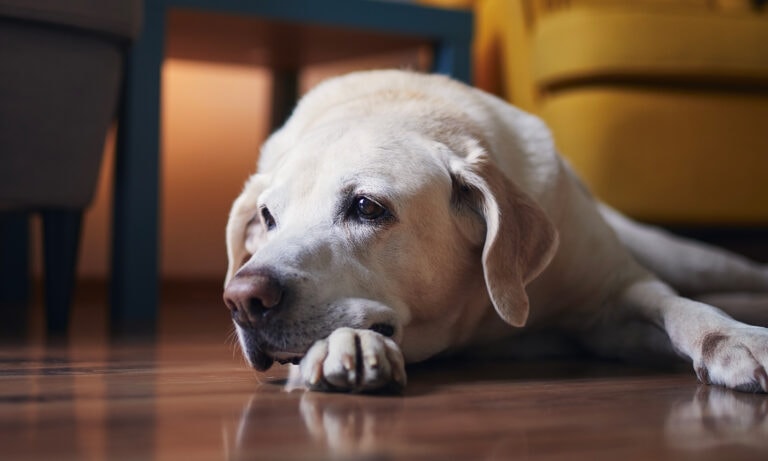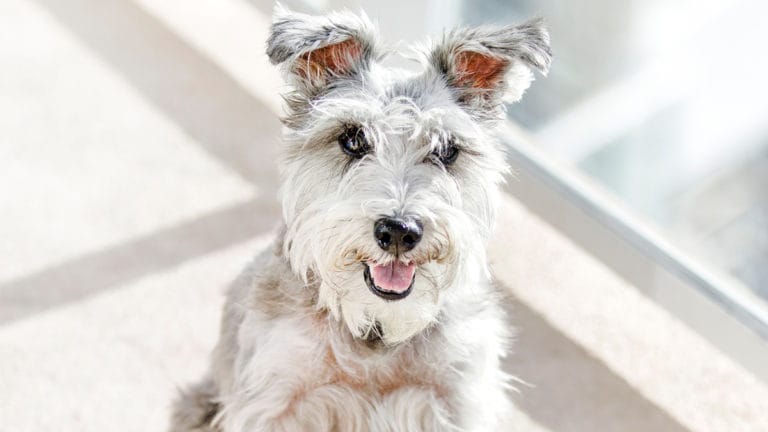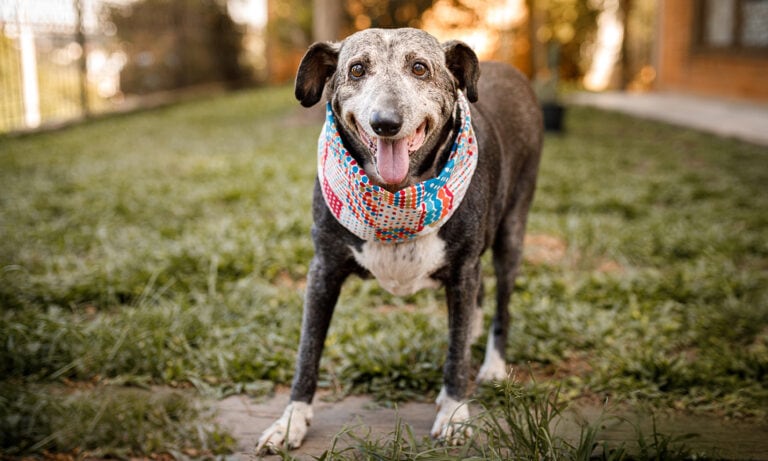As dogs age, we can expect changes, like a shift in activity level or different sleep patterns. But some pet parents are surprised to find their older dog showing unexpected behavior problems—specifically aggression—with age. Your formerly sweet dog may even begin to bite. Although all changes in senior dogs should be brought to the attention of a veterinarian, this particular problem often feels especially pressing.
So, what prompts previously peaceful dogs to begin showing aggressive behavior as they enter or proceed through their golden years? It’s important to figure it out—because identifying the underlying cause of your dog’s behavior change is the first step toward finding a solution. Always speak with your veterinarian regarding any changes you notice in your pet, they can help you determine the underlying cause and the right treatment plan.
Here are some possible reasons why your older dog may become aggressive with age and how to handle their behavior changes.
Causes and Solutions for Aggression in Older Dogs
1Pain
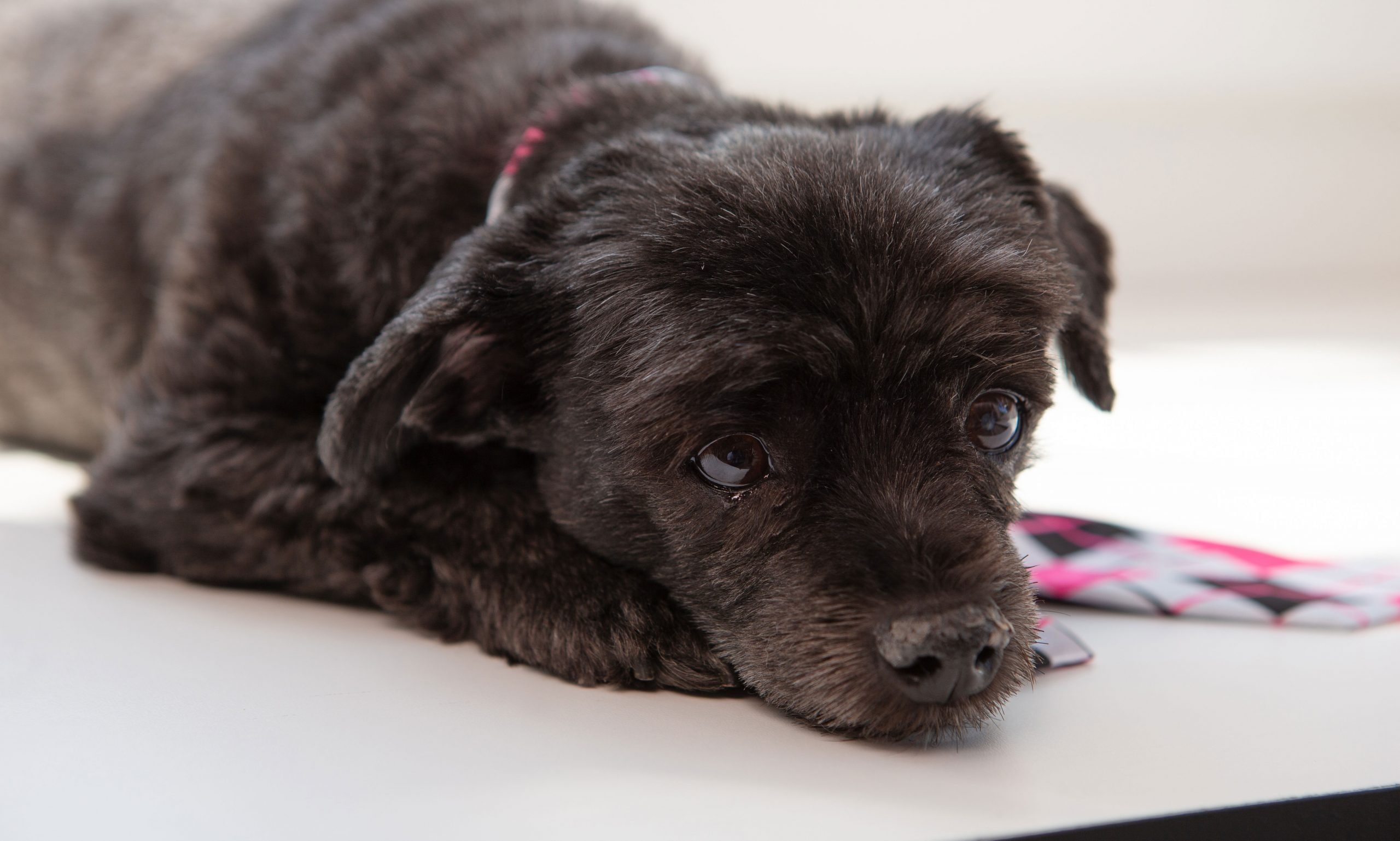
2Growing Intolerance
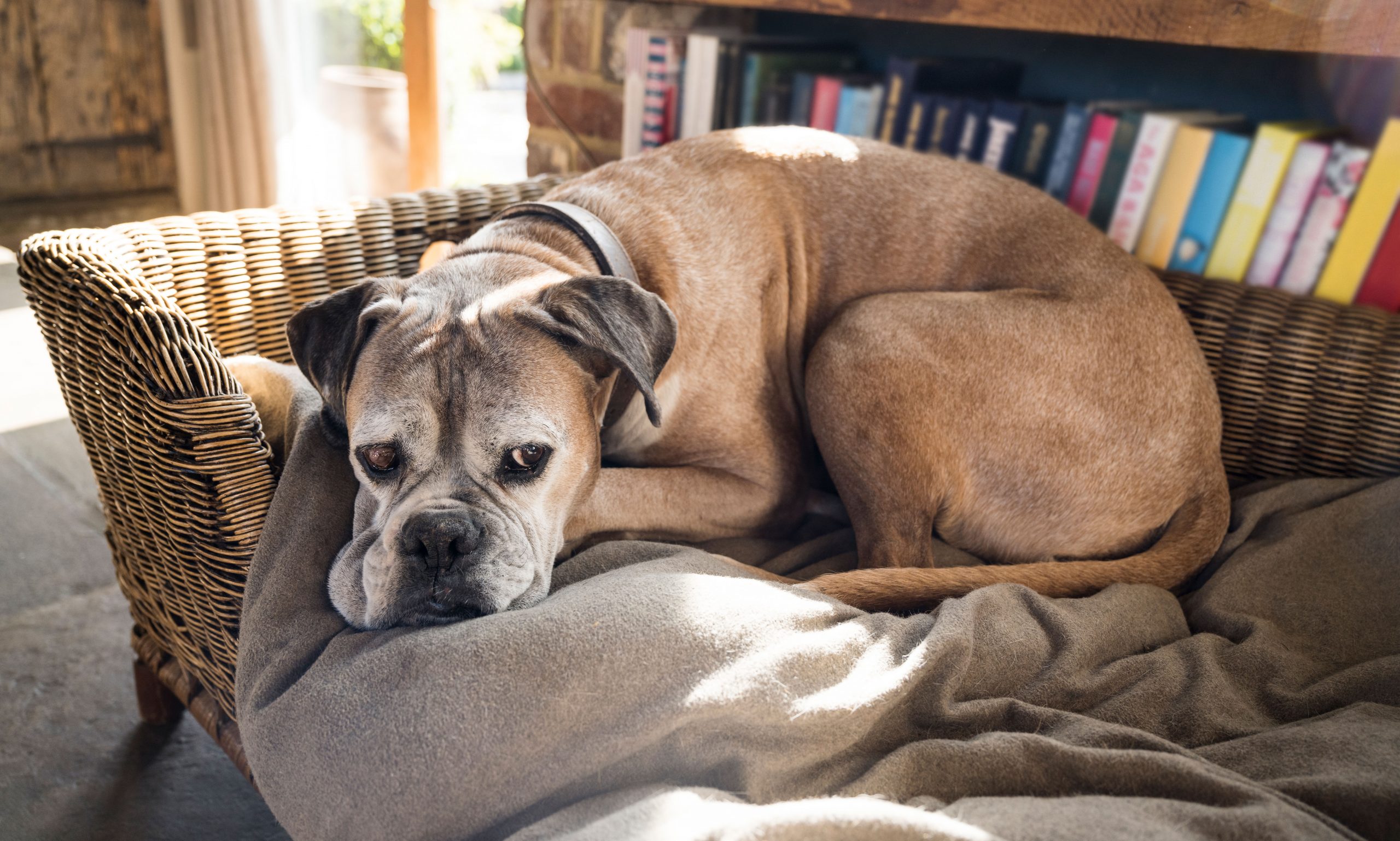
Pain is a common underlying cause of older dog bites, according to the American Veterinary Medical Association.
Pain can be caused by medical issues associated with the process of aging, like joint pain or arthritis, bone and muscle deterioration, dental issues, or flare ups from old injuries. Or it can result from medical conditions, like cancer.
Observing their body language and out-of-the-ordinary animal behaviors can help you determine whether pain may be an issue. Older dog pain can manifest in a variety of ways, including:
- Sluggishness
- Shaking
- Avoiding physical contact
- Hesitation or unwillingness to use stairs
- Difficulty getting up or laying down
- Limping
- Decreased appetite
- Vocalization, like whimpering, growling, or barking
- Licking or biting specific body parts
- Restlessness
- Excessive panting
- Withdrawal/hiding
- Difficulty sleeping
Dogs who are uncomfortable or achy might not want to be touched, and they can react to someone reaching out with preemptive growling, a warning air snap to discourage contact, or even an actual bite.
Solutions for Dog Aggression Due to Pain
Pet parents should work with their veterinarian to diagnose the medical issue behind their dog’s pain and treat it accordingly.
Senior dogs who bite due to pain will likely exhibit some sort of indicator prior to the dog’s bite, so pet parents should understand and acknowledge what their dog is communicating and avoid pushing the dog into a scenario where they resort to biting. Before their initial vet check-up, pet parents should avoid contact if a dog is signaling that they don’t want to be touched or picked up.
The memory of pain and fear of contact can linger even after pain management treatment begins, so pet parents should help change their dog’s perception of touch on a formerly painful area by pairing the action with small treats.
3Canine Cognitive Dysfunction
Though many dogs maintain a cheerful disposition throughout their lives, a combination of factors related to aging can lead to “grumpy dog syndrome,” the unofficial term for the phenomenon of a dog exhibiting an increase in aggression due to the combined effects of aging.
Potential causes of grumpy dog syndrome include:
- Mild pain, possibly due to one of the health problems listed above
- Balance issues
- Vision and/or hearing loss
- Early effects of dementia
When our senior canine family members who previously received proper socialization and did not display behavior issues in the past have aged into grumpy dog syndrome, they’re basically the canine equivalent of older neighbors who yell “get off my lawn!” to playing children. They’re set in their ways and need their predictable routines to stay content. And because of physical deficits such as hearing and vision loss, too much stimuli may prove to be unbearable and they might prefer to be left alone rather than join a group.
When pushed beyond their comfort zone, dogs aging into growing intolerance might react with snarling, a nip, a bite, or other aggressive behaviors. Senior dogs in households with small children who don’t understand canine body language—or households with a new puppy or younger dogs who play roughly—might also be more likely to snap when they’re pushed beyond their limit.
Warning signs that your dog may be entering that senior grumpy zone include:
- Sleeping more
- Choosing to be isolated in certain areas of the house
- Not soliciting or avoiding physical contact
- Reluctance to leave the house
- Growling when caught off guard
- Disinterest in interacting with other dogs
- Ignoring training cues
Solutions for Dog Aggression Due To Age-Related Intolerance
When the cause of aggression is a result of age-related intolerance, there are a few steps you can take:
- Adhere to a predictable schedule for feeding, walks, and napping.
- Allow surly seniors to downshift when necessary.
- Provide your senior dog with comfortable beds in quiet spaces.
- Set up escape routes by using pet gates to keep younger family members or other dogs away during quiet times.
- Avoid startling a sleeping senior. Instead of touching the dog to wake them, speak to them to help them rouse. If they’re suffering from hearing loss, tap the ground near their bed so that the vibration will wake them.
- Acknowledge when a senior prefers not to be touched instead of forcing an interaction.
- Try to gently encourage enrichment by providing meals from treat-stuffable toys.

Check With Your Vet
An old dog suddenly showing signs of aggression is an issue that should be evaluated by a veterinarian as soon as possible. Once your vet determines the root cause of the change in temperament, you can begin to address it with treatments and exercises.
Watching a beloved dog’s behavior change as they age can be heartbreaking, particularly when the symptoms include biting. But the goal is to keep everyone in the household healthy and safe—from other dogs to children to pet parents.
With veterinary support, pain management, and other treatments if necessary, and acknowledgement of your senior’s evolving likes and dislikes, improving the quality of life for a dog with a tendency to bite may help them mellow into a happier old soul.
Expert input also provided by Holly Brooks, VMD, small animal veterinarian at Quakertown Veterinary Clinic in Quakertown, Pennsylvania. Additional reporting by Laura Willard.
This content was medically reviewed by Chewy vets.
Senior dogs can experience cognitive changes that are similar to those seen in human Alzheimer’s. Called canine cognitive dysfunction (CCD), this progressive decline is more dramatic than changes that can be attributed to the aging process.
“Canine cognitive dysfunction is a slowly progressive behavioral change that leads to declines in several aspects of a dog’s life,” says Holly Brooks, VMD, a small animal veterinarian at Quakertown Veterinary Clinic in Quakertown, Pennsylvania. “Similar to humans, it is related to plaques that form on the brain. There can also be decreases in brain mass as well.”
CCD, also known as dog dementia, includes a cluster of predictable indicators, including personality shifts (formerly standoffish dogs might begin seeking out more attention and dogs who were friendly in their youth might begin reacting aggressively). Because of the attendant confusion, CCD dogs might seem aggressive suddenly and escalate to biting.
Senior dogs suffering from CCD may also exhibit the following symptoms:
- Sleep pattern changes
- Confusion
- Housetraining lapses
- Getting “trapped” in or behind furniture
- Vocalization
- Increased anxiety
- Pacing and/or turning in circles
- Seeming lost in familiar spaces
- Decrease in playful behaviors
Solutions for Dog Aggression Due To Canine Cognitive Dysfunction
Pet parents should first schedule a veterinary appointment to determine if their dog is suffering from CCD and to rule out other illnesses, especially other neurological conditions. If diagnosed with CCD, nutraceuticals and supplements may help. Additionally, a prescription drug called Anipryl® could slow the progression of CCD, according to Dr. Brooks, who adds that anti-anxiety medication can help encourage restless dogs to sleep.
Supporting seniors as they cope with the progression of the illness is critical. Here are a few ways you can do so:
- Manage the dog’s household so that furniture and rugs remain in place to prevent confusion and use baby or dog gates at the top and bottom of staircases to prevent accidental falls.
- Because dogs suffering from dementia might have less predictable triggers for biting, try to recognize all the factors that led to past dog bites and either manage interactions to prevent them from happening again or use basic training to change the dog’s perception of the situation. For example, if a dog suddenly air snapped when a person walked near their food bowl, toss treats to the dog when passing by so that the dog makes a positive association to people near their bowl.
- Refrain from punishing seniors for housetraining mistakes and lapses in basic dog training because the cognitive decline and related behaviors are out of the dog’s control. Your dog’s behavior isn’t intentional and it’s unlikely to be remedied with punishment.
More ways to care for your senior dog:
Share:




